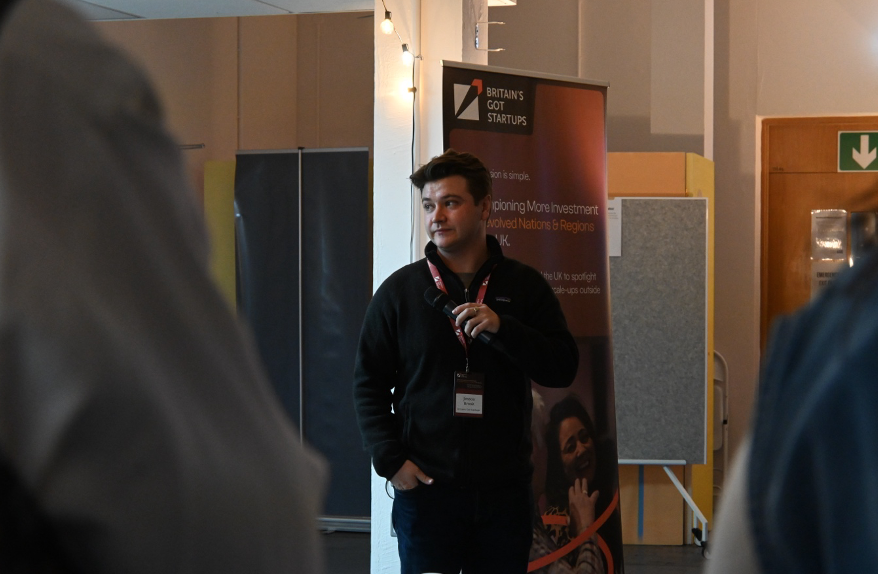
Explore how Wales can transform brain drain into brain gain by engaging its global diaspora, fostering investment, and building a vibrant, connected future.
Wales faces a pivotal opportunity to redefine its relationship with its global community. The Global Welsh Brain Drain Report, commissioned by GlobalWelsh and led by Dr. Sarah Louisa Birchley, offers an in-depth exploration of the Welsh diaspora's composition, challenges, and potential. This study, informed by surveys and interviews with over 1,700 members of the diaspora, reveals a community that is highly educated, entrepreneurial, and deeply connected to its heritage.
While emigration has historically been framed as a loss, the report challenges this narrative by showcasing the diaspora’s willingness to reinvest in Wales's economic and cultural future. It highlights barriers such as limited infrastructure, weak investment frameworks, and insufficient support for return migration, while offering actionable strategies to transform the “brain drain” into a powerful “brain gain.” With targeted efforts, Wales can mobilize its global talent pool to drive innovation and growth.
The Global Welsh Brain Drain Report paints a vivid picture of the Welsh diaspora, capturing its scope, diversity, and potential. Based on a survey of 1,709 individuals across 45 countries, the findings highlight the geographical, professional, and cultural attributes of this dynamic community.
The Welsh diaspora spans the globe, with significant populations in the United States, Australia, and the European Union. Within these regions, hotspots include California, New York, Texas, Sydney, Melbourne, and Perth.
The diaspora encompasses all age groups but is predominantly within the working age of 25 to 64 (67%). Men constitute a larger share of respondents at 66%, compared to 32% identifying as women.
Welsh expatriates are exceptionally well-educated, with 45% holding master’s degrees or higher. Common fields of study include Business Administration, Humanities, Engineering, Science, and IT. Impressively, 62% of respondents expressed a willingness to share their knowledge and expertise with Wales.
Welsh professionals are active in a diverse array of industries, with a strong presence in:
This diversity reflects the adaptability and skills of the Welsh workforce abroad.
A significant proportion of the diaspora demonstrates entrepreneurial ambition. Nearly 26% of respondents identified as business owners or managers, collectively operating around 500 companies worldwide. These enterprises span industries such as technology, healthcare, and finance, highlighting the potential for economic contributions to Wales.
Despite the physical distance, the Welsh diaspora maintains robust ties to its heritage. A remarkable 92% of respondents expressed pride in being Welsh, and nearly 10% actively use the Welsh language in their daily lives. Additionally, 20% of expatriates are committed to teaching their children the Welsh language.
Interest in cultural engagement remains high, with 56% of respondents eager to participate in Welsh events globally, showcasing the diaspora’s enduring connection to its roots.
The Welsh diaspora stands out as a highly skilled, entrepreneurial, and culturally engaged community. This group’s willingness to contribute to Wales’s economic and social development underscores the opportunity for the nation to turn brain drain into a transformative “brain gain.”
The report underscores that Wales loses up to 40% of its university graduates to out-of-region or international opportunities within three years of graduation. This trend undermines efforts to grow knowledge-intensive industries locally.
When surveyed, 55% of Welsh expatriates expressed an interest in returning. However, obstacles such as limited career opportunities, inadequate infrastructure, and lower salary scales deter many.
While brain drain poses challenges, the report also identifies opportunities:
The Global Welsh Brain Drain Report offers actionable strategies to transform Wales's brain drain challenge into an economic and cultural opportunity. By addressing the barriers identified in the research, Wales can re-engage its diaspora and foster a globally connected, vibrant future. Here are the key recommendations:
Creating a formalized structure to connect with the diaspora can enable sustained collaboration. A dedicated body could oversee initiatives, organize global events, and streamline partnerships between Welsh organizations and expatriates. Platforms like GlobalWelsh offer models for connecting expatriates to home-based networks. Scaling these initiatives could amplify collaboration.
Encouraging economic contributions from the diaspora is critical. Wales should develop tailored investment platforms to facilitate diaspora-led funding for local businesses and industries.
To attract returnees, Wales needs robust policies, including competitive job opportunities, relocation grants, and support programs for reintegrating into the local economy.
Creating mentorship and advisory networks can tap into the expertise of the highly educated Welsh diaspora. Digital platforms could support seamless collaboration between expatriates and local professionals or institutions.
Promoting Welsh culture internationally is essential to maintaining strong emotional ties. Expanding participation in Welsh cultural events and supporting language preservation efforts can reinforce the diaspora’s connection to its heritage. Cultural initiatives can strengthen emotional connections, such as expanded observance of St. David’s Day or showcasing Welsh art on global platforms.
By implementing these recommendations, Wales can turn its global network of citizens into a valuable engine for national growth and innovation. Let me know if you'd like to expand on any of these strategies!
The Welsh diaspora, with its vast pool of talent and resources, represents an extraordinary opportunity for Wales. The Global Welsh Brain Drain Report offers a pathway to turn this “loss” into a strategic advantage through engagement, policy innovation, and collaboration.
By doing so, Wales can create a globally interconnected, vibrant future while embracing its cultural heritage.

Jenson Brook, founder of Novus Capital, shares his approach to supporting innovative startups and expanding access to funding beyond London.
Read More
La startup lorientaise Fendsea entre dans une nouvelle phase de croissance, portée par son développement commercial et son expansion internationale.
Read More
On 15 December, we officially launched Global Cornish at Westminster, bringing together nearly 200 Cornish diaspora from business, politics, culture, and sport.
Read More
Dirigeants bretons, développez votre réseau interceltique. Découvrez pourquoi et comment participer à l’Interceltic Business Forum 2026 à l’Île de Man.
Read More